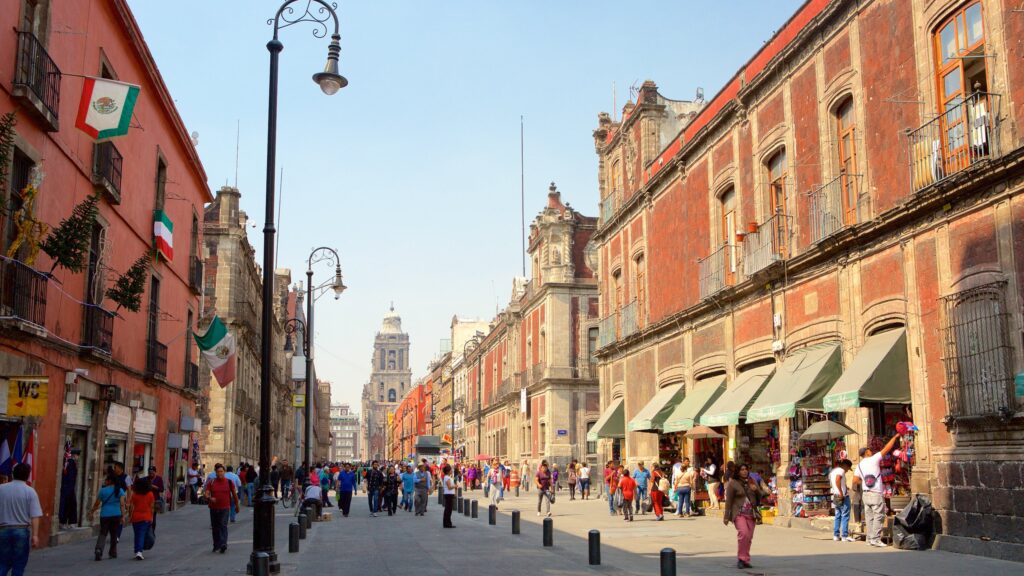In 2025, the digital nomad lifestyle isn’t just a passing trend — it’s a global movement reshaping the future of work. Driven by the widespread adoption of remote-first policies, rising demand for work-life flexibility, and governments launching dedicated digital nomad visas, more professionals than ever are trading traditional office cubicles for beachfront cafés, mountain hideaways, and buzzing city coworking spaces.

According to a 2024 report by MBO Partners, there are now over 40 million digital nomads worldwide, a 30% increase since 2021. Southeast Asia, Southern Europe, and Central America have emerged as top hubs, offering affordable living, reliable internet, and vibrant expat communities. Cities like Chiang Mai, Lisbon, Bali, and Mexico City have become household names among remote professionals.
Whether you’re a freelance designer, software developer, marketer, or entrepreneur, 2025 presents the most accessible and resource-rich environment to embrace location independence. And with the right tools, strategies, and destinations, you can build a career you love while exploring the world.
The Rise of the Digital Nomad in 2025: Why Now?
The digital nomad movement has skyrocketed since the pandemic, and the trends are only growing stronger. As companies embrace flexible work policies and remote job listings continue to expand, more people are discovering that they can do their jobs from just about anywhere in the world. In fact, by 2025, the number of digital nomads is projected to reach over 50 million.
What’s driving this shift?
- Remote work adoption: Large companies and startups are increasingly offering remote-first policies, with the ability to work from anywhere becoming a key attraction for top talent.
- Global mobility options: Digital nomad visas introduced by countries like Portugal, Estonia, and Barbados have made it easier for workers to legally live and work abroad.
- Better connectivity: Reliable high-speed internet is now available in even the most remote corners of the world, making it easier for nomads to stay connected no matter where they are.
With these factors aligning, the dream of traveling while working has become a reality for millions of people.

Top Digital Nomad Destinations in 2025
Choosing the right place to live and work as a digital nomad is one of the most exciting parts of the journey. You’ll want to balance affordability, quality of life, internet reliability, and community support. Here are some of the best digital nomad hubs in 2025:
1. Chiang Mai, Thailand
Often dubbed the “digital nomad capital of the world,” Chiang Mai continues to be a top choice for remote workers. The low cost of living, thriving coworking spaces, and laid-back lifestyle make it an ideal base for those looking to live cheaply while staying productive. Plus, Thailand’s long-term tourist visa is perfect for nomads looking to stay for an extended period.

2. Lisbon, Portugal
With its affordable living costs, rich culture, and scenic landscapes, Lisbon has quickly become one of Europe’s most popular nomad destinations. The Portuguese Digital Nomad Visa is a game-changer for those looking to live and work in Europe long-term. Its vibrant tech scene and strong expat community also make it a great place to network.

3. Bali, Indonesia
For the adventurous at heart, Bali remains a paradise for digital nomads. Known for its breathtaking natural beauty, affordable lifestyle, and thriving community of like-minded travelers, Bali offers a perfect balance of work and play. Canggu and Ubud are particularly popular for their coworking spaces and relaxed vibes.

4. Mexico City, Mexico
With its rich culture, history, and rapidly growing startup scene, Mexico City has become a digital nomad hotspot in Latin America. The cost of living is affordable, and the city’s excellent public transport, coworking spaces, and vibrant social life make it an exciting and practical choice for remote workers.

5. Medellín, Colombia
Known for its year-round pleasant weather, strong nomad community, and lower cost of living, Medellín is an up-and-coming digital nomad hub. The city offers a rich cultural experience, while also providing reliable internet and a growing number of coworking spaces.

Managing Finances as a Digital Nomad
One of the most common concerns for digital nomads is managing finances while living and working abroad. Here are some key tips to keep your financial life on track as you embrace the nomadic lifestyle:
1. Open a Global Bank Account
When living in multiple countries, it’s essential to have access to a global bank account. Services like Wise (formerly TransferWise) and Revolut allow you to hold multiple currencies, make international transfers, and avoid hefty foreign transaction fees. These services also provide a debit card, making it easy to withdraw cash from ATMs worldwide without incurring high fees.
2. Track Your Spending
Using budgeting apps like YNAB (You Need a Budget) or Goodbudget can help you keep track of your income and expenses across different countries. Whether you’re living in a low-cost country like Thailand or a more expensive city like Lisbon, knowing where your money is going is essential for maintaining financial freedom.
3. Consider Tax Implications
While you may be traveling the world, taxes remain a critical part of your financial planning. Many countries tax their residents on worldwide income, so it’s essential to understand your tax obligations. The Foreign Earned Income Exclusion in the U.S., for example, allows American digital nomads to exclude up to a certain amount of income from federal taxation. It’s advisable to consult with an international tax professional to ensure you’re in compliance.
4. Save for Retirement
As a digital nomad, you may not have access to employer-sponsored retirement plans. Consider setting up an individual retirement account (IRA) or contributing to local pension schemes in your home country. It’s never too early to start saving for your future.
Accommodation Options for Digital Nomads
Finding the right accommodation is crucial to a successful digital nomad lifestyle. Here are some popular options:
1. Airbnb & Short-Term Rentals
Airbnb is a popular option for digital nomads looking for flexible accommodation. With thousands of listings worldwide, you can rent apartments, houses, or even rooms in shared spaces. The best part? Many properties are designed with remote workers in mind, offering high-speed internet and comfortable workspaces.
2. Coworking Spaces with Accommodation
Some coworking spaces, particularly in digital nomad hotspots, offer accommodation packages. Selina and Outsite are two popular brands that combine coworking spaces with comfortable living arrangements. These locations are ideal for nomads looking to balance work and play while having a built-in community of like-minded individuals.

3. Hostels and Co-Living Communities
For those on a tight budget, hostels or co-living spaces can be great options. Many hostels cater to long-term travelers and offer communal workspaces, Wi-Fi, and access to a social community. Co-living spaces like The Collective or Coliving offer a mix of workspaces and private rooms, providing a balance between privacy and social interaction.
The Psychology of Being a Digital Nomad: Balancing Work and Adventure
While being a digital nomad is an exciting and liberating lifestyle, it can also be mentally challenging. Here are some psychological considerations and tips to maintain balance:
1. Loneliness and Isolation
One of the biggest struggles that digital nomads face is loneliness. Being away from family and friends can take a toll on mental health. To combat this, actively seek out communities of like-minded nomads. Attending meetups, joining coworking spaces, and participating in local events can help you form connections and friendships on the road.

2. Work-Life Balance
It’s easy to get caught up in your work when you’re in an exciting new destination. To avoid burnout, establish clear boundaries between work and leisure time. Schedule your “work hours” and set aside time to explore your surroundings. This will help you maintain a healthy balance and prevent work from overshadowing your travel experience.
3. Finding Purpose and Routine
A common challenge for digital nomads is maintaining a sense of routine and purpose while constantly changing locations. Establishing a morning routine or setting daily goals can provide structure, helping you stay productive and focused while still enjoying the freedom of travel.
Conclusion: Embrace the Digital Nomad Lifestyle in 2025
The digital nomad lifestyle is no longer a far-off dream — it’s a growing reality for millions of people around the world. With the right tools, mindset, and a solid plan, you can build a career that allows you to work from anywhere and explore the world on your terms.
In 2025, the opportunities for remote work are more abundant than ever. Whether you’re just starting your digital nomad journey or are a seasoned traveler, now is the time to embrace this exciting lifestyle. So pack your bags, fire up your laptop, and get ready to take your work wherever the world takes you.
Are you ready to become a digital nomad in 2025? Share your top destinations or tips for remote work in the comments below.





Leave a Reply